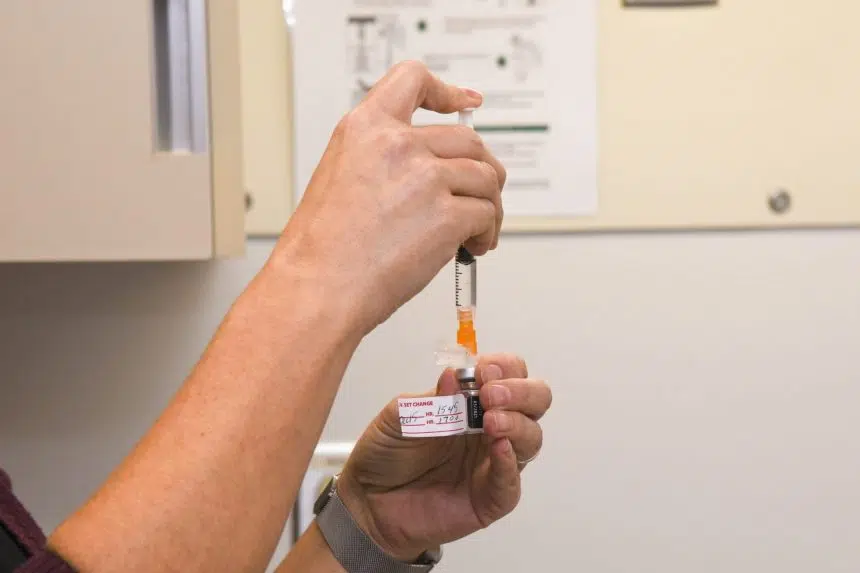Infectious disease physician Dr. Alex Wong’s advice regarding the AstraZeneca vaccine remains the same: Take the first vaccine offered.
Wong was speaking to the Greg Morgan Morning Show on Wednesday, a day after the first instance of a vaccine-induced blood clot was reported out of more than 700,000 doses administered in Canada.
“I’ve said it so many times before and it feels like a broken record. The most effective vaccine is the first one you’re offered, especially at this time, with variants circulating so aggressively in the province,” Wong said.
Wong sees a messaging challenge with the vaccine, which has been put under intense scrutiny. But despite AstraZeneca being under the glare, he said the regulatory process has unfolded as it should have.
“We have robust surveillance systems in place, we care about safety and when there’s a safety signal … it’s not a reason to throw something to the curb,” he said.
“You have to take it seriously and that’s exactly what’s happened here and that’s why (the National Advisory Committee on Immunization) and subsequently all the other recommendations have gone forward to create this age-based approach.”
As proof of the vaccine’s efficacy, Wong points to the United Kingdom, where the vaccine was developed and where a “huge amount” has been used.
“The U.K. has suffered one of the most stringent lockdowns in the world and they are finally emerging from all of this with their case rates plummeting as a result of widespread vaccination,” he said. “So they’ve done great. Hopefully we’re on the same path.”
Wong also took questions submitted by listeners.
One was whether vaccinated people can hug their loved ones.
The doctor said the answer depends on where you live. In Canada, public health guidance still applies when it comes to physical distancing and masks. In Saskatchewan, people must stay in their household bubbles.
The U.S. Centers for Disease Control has different advice, where people fully vaccinated with two doses can interact without masks with others who have been fully vaccinated, provided neither party has COVID-19 symptoms.
Another question was about whether vaccinating children will become a future priority. Wong believes that will be the case.
“(There are) lots of discussion around outbreaks in schools and the fact that kids are vectors of transmission. There’s no question about that, especially with these new variants,” he said, noting all the major vaccine manufacturers are now conducting clinical trials for children.







